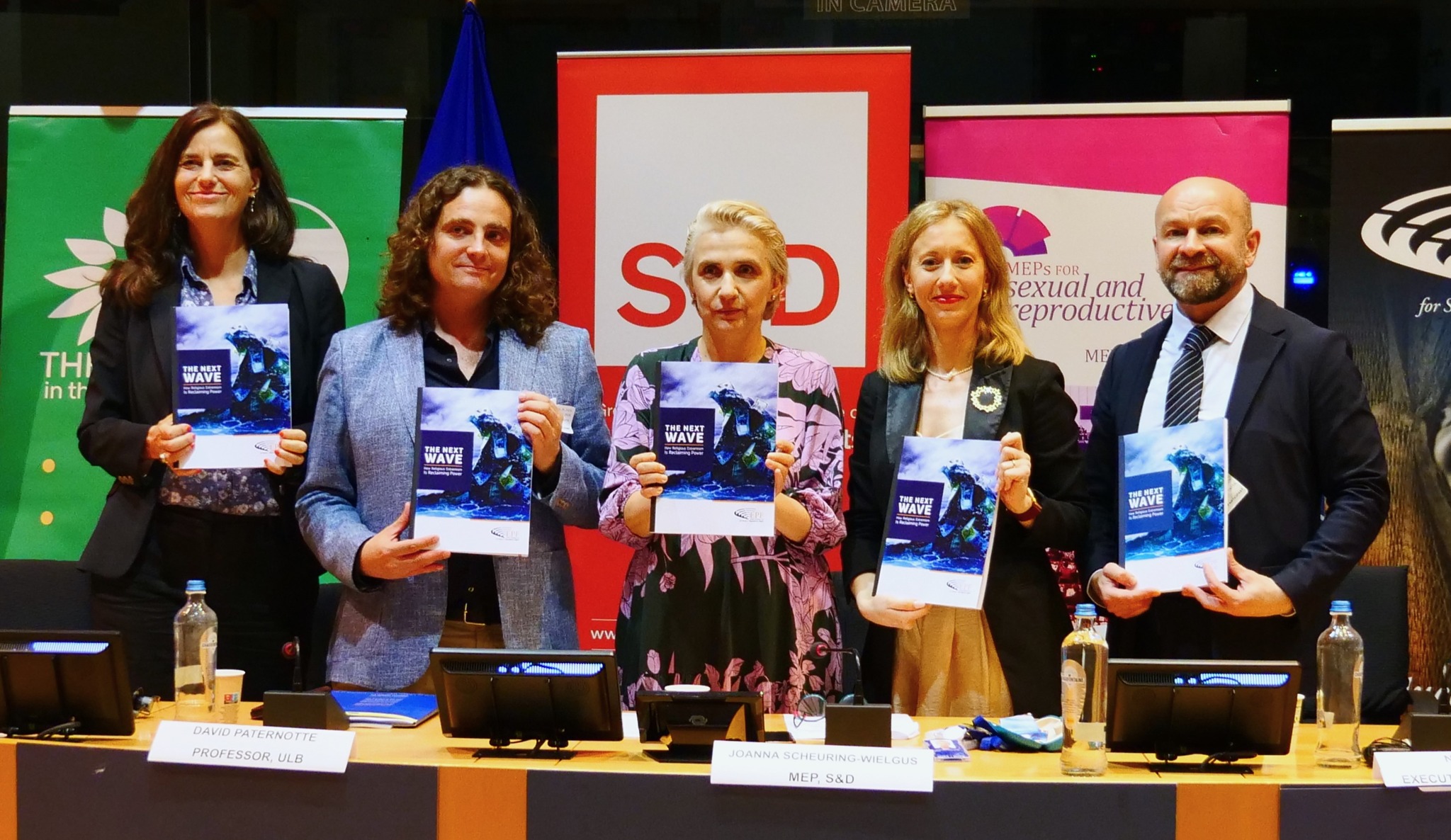
Behind the despicable hate-campaign is a failed actor and LGBTQ activist.Continue reading

On June 26th, the European Parliamentary Forum for Sexual and Reproductive Rights (EPF) published The Next Wave—How Religious Extremism Is Reclaiming Power, a report that claims to reveal the growing influence of so-called “anti-feminist” religious groups in Europe. Its funding comes from donors such as the Bill & Melinda Gates Foundation, Open Society Foundations (linked to George Soros), and IPPF — organizations that are often based outside Europe and have a clear interest in steering social policy on the continent. Ministerial Commissioner Bernadett Petri, who is also mentioned in the report, called the document a clear attack on Christianity.
You recently raised concerns about the report titled “The Next Wave—How Religious Extremism Is Reclaiming Power,” published by a Brussels-based network. Could you elaborate on what you find particularly problematic in this report?
I think this report is actually a very important example of the extent to which anti-Christian sentiment is gaining ground in Europe, and particularly in the European Union. It is an openly anti-Christian piece of work that fits perfectly into the trend regularly reported by several sources, including the American publication The Voice of the Martyrs: namely, that Christianity has become the most persecuted religion in the world today.
This material is relevant in several respects. One is that it presents the rise of conservatives as a “counter-revolution” that is harmful to progressive Europe and poses a serious risk, because it challenges traditional Christian values such as the family model and the social role of churches. However, it is important to emphasize that church organizations have been stable elements of society for centuries, even millennia: they have significant experience in education, family support, and social services, and their decisive power cannot be replaced. We have long seen a kind of distancing from this role on the part of the EU, and this parliamentary forum—which represents the most radical gender and LGBTQ+ movements—is explicitly questioning this traditional role.
I believe that this organization is actually afraid that those who believe in God, family, country, and traditions will regain strength and build society on these values. It is important to ask the question: why are they afraid of this?”
It should also be noted that the founding documents of the EU and national constitutions prohibit statements against religious denominations of the type represented by this study and its supporters. The European Union itself was founded on Christian values, and this has only changed in the recent past. Therefore, this document may also be illegal, as it not only forms an opinion, but also specifically portrays churches and Christianity as enemies, which is not true.
I would also like to highlight that the document criticizes church organizations for having a say in the development of the new multiannual financial framework (MFF). But why shouldn’t they have a say in how part of the EU budget is spent? Let us remember: when Pride was held in Hungary and the commissioner who announced the new EU strategy on LGBTQ issues and the related financial resources was present, that was also a choice of values. There is no new money in the EU budget, so if additional resources are allocated to something, they have to be taken from somewhere else.
And here is the most important question: why are church organizations not involved in consultations and priority setting when they play a serious and active role in areas such as sustainability? There is simply no other way to interpret this trend than as a deliberate attempt to exclude Christianity from the functioning of the EU. This is a mistake, as the European Union itself was built on the theory and principles of Christian democracy, which also formed the basis for solidarity between Member States.
The report labels organizations such as the Brussels-based MCC, the Hungary Helps government initiative, ECR New Direction, and ADF International as “extremist,” and it also mentions you by name several times. In your view, what risks arise when mainstream institutions and individuals are branded in this way?
When I saw my name in this document, I was actually proud to be included. It means that I am doing something right—after all, if I were not doing it well, visibly or effectively, they would not try to blacklist me at this level. On the other hand,
I find it very dictatorial to list people and organizations that stand on the side of Christianity, especially for representing traditional values.”
Incidentally, this study is radically aggressive in tone. In the European Union, for example, the Hungarian Catholic Church also wants to be an active player, as Article 17 of the EU treaties stipulates that religious denominations must be consulted – even if the EU unfortunately often treats this as a task to be ticked off rather than as a genuine dialogue. I will personally contact the ambassador representing the Holy See in Brussels to ask for his opinion on this.

Bernadett Petri, Photo: Vida Balázs
I believe that beyond seeing one’s own name in this document – along with the names of many other important organizations – it is important to do something to prevent this from becoming a trend.
I have not seen or heard any statement in which, for example, the President of the European Parliament has distanced herself from this report. If this does not happen, then unfortunately it will increasingly reflect on the European Parliament, as this is a platform operating within an official parliamentary framework.”
I therefore call on all like-minded people to take action: let us take a stand on this issue! I myself am thinking about what could be done – perhaps a petition or some other way of showing that no one has been intimidated by this. On the contrary, our goal is to continue this fight and to act together, with increasing determination, against such progressive tendencies that keep Christians who practice their faith in fear.
One of the main financial backers of the report, Daniele Capel-Marcovici, is reportedly also linked to the Patent Association, which promotes radical feminist and pro-abortion positions in Hungary. What is your view on this connection?
I am not surprised, as we can see how strongly these NGOs are able to organize. I believe that this type of action should be approached primarily from the perspective of the position they represent in relation to Christianity, and not necessarily from the perspective of their activities in other Member States. In Hungary, too, it is clear that they are launching various petitions and trying to defend the positions they believe are important to represent—for example, against the traditional family model, on issues of abortion or birth control. At the same time, it is also clear that this type of action is often self-serving, as these organizations often do not engage in real, meaningful social activities, but rather live off the funds they obtain, distribute them, and build their operations on them.
Featured photo: Facebook/European Parliamentary Forum for Sexual & Reproductive Rights